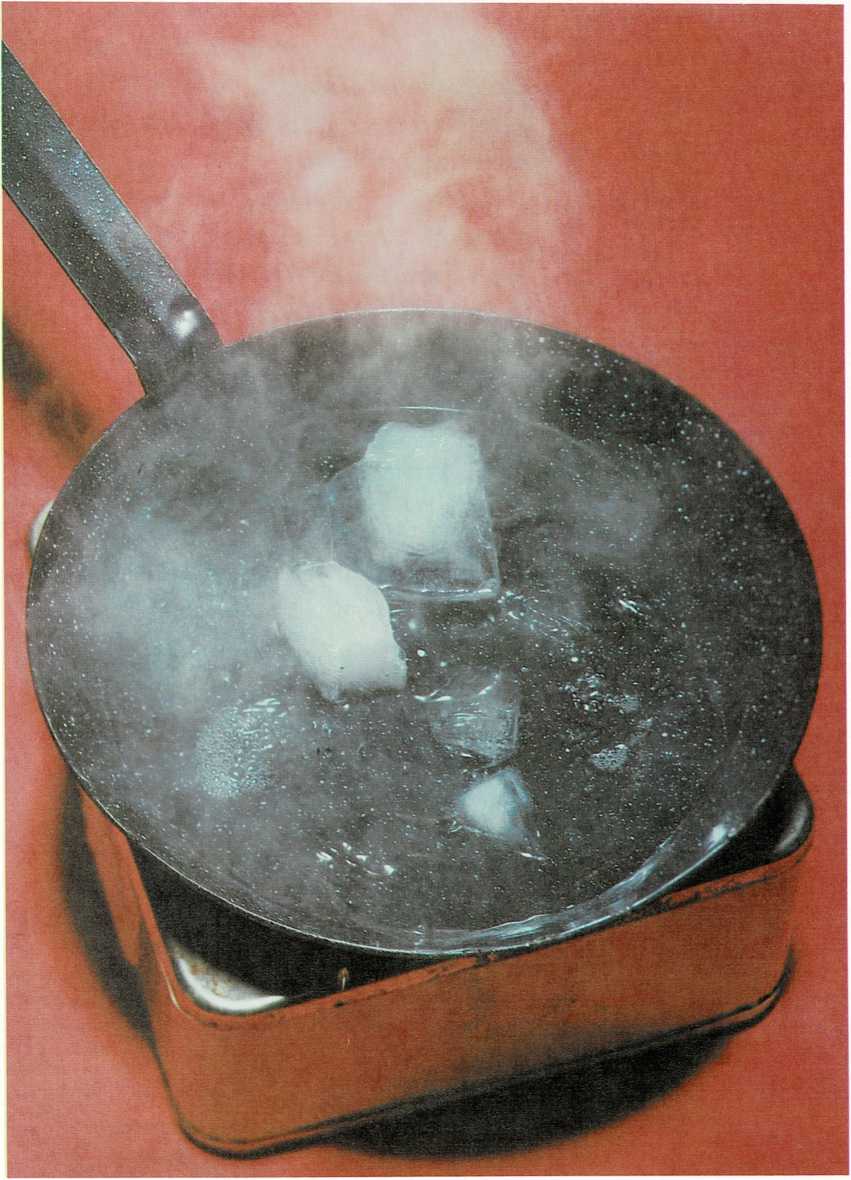
Speeding up molecules
Can you fry ice cubes? You can try—but if you heat ice cubes in a pan,
they won’t be ice cubes any more. The ice will melt into water. And,
after a while, the water will boil and turn into steam. What makes the
ice cubes change?
Ice melts because something happens to its molecules. Heat energy makes
the molecules move faster. As the molecules speed up, they begin to move
away from each other. Then the ice becomes a liquid—water.
Heat speeds up the molecules in liquids, too. So, as the molecules speed
up, they move even farther apart. Finally they lose almost all their
pull on each other. Then the liquid evaporates (ih [vap]{.smallcaps} uh
rayts). It becomes a gas.
And that’s what happens when water boils. Heat makes the molecules roll
and tumble faster and faster in the pan. When the water molecules are
moving fast enough, they become steam—they evaporate and mix with the
molecules in the air.
Heat changes ice cubes from a solid (ice) to a liquid (water), and then
to a gas (steam).

